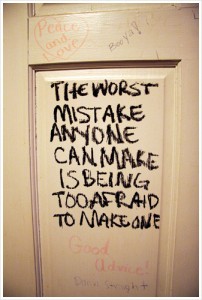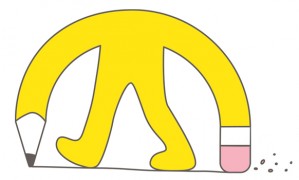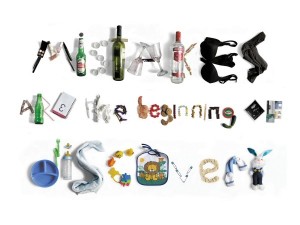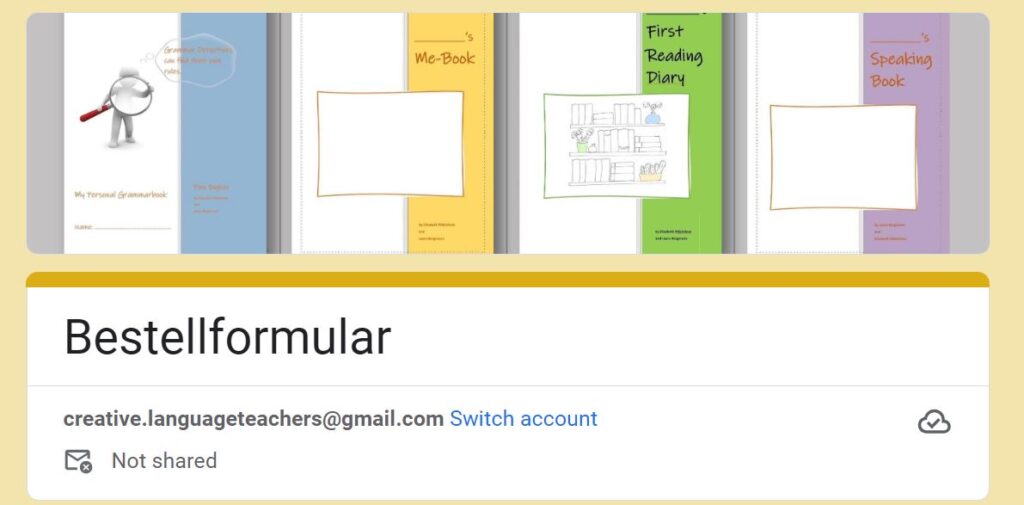Mistakes are the beginning of discovery. They are necessary stepping stones in any learning process.
Have a look at my favorite quotes supporting this view:
“A teacher’s attitude to mistakes and correction is central to what is done, avoided and valued in the classroom on a day to day basis. A misguided, or more likely unformulated, view of error and correction can undermine everything else.” M. Lewis /1993). The Lexical Approach: p 164
“Many of the things we call mistakes and see as problems are in fact signals that our students are successfully learning the language. They are taking the necessary learning steps.” (Edge, Julian. 1989. Mistakes and Correction. London/New York: Longman. p. 14)
 “If the teacher wants accuracy above all things and never minds what ideas the students express, then that teacher will get attempts at accuracy: no mistakes and no learning steps! (Edge, 1989: 16)
“If the teacher wants accuracy above all things and never minds what ideas the students express, then that teacher will get attempts at accuracy: no mistakes and no learning steps! (Edge, 1989: 16)
“If students are criticized for trying, they will stop trying.” (Bartram, Mark and Walton, Richard (2002). Correction: A Positive Approach to Language Mistakes. Boston: Thomson Heinle. p. 15)
“Teachers tend to see mistakes only in terms of what the student actually says. These could be called ‘mistakes of commission’. Another way of looking at mistakes is in terms of what the student did not attempt to say – in other words, ‘mistakes of omission’. Why should it matter what the student did not say? Simply because, if language is communication, then non-communication is a kind of mistake. If the student wants to say something, but is prevented, that is surely unsatisfactory. One of the reasons they do not say it is because they are worried about the possibility of making a mistake.” ((Bartram, Mark and Walton, Richard (2002). Correction: A Positive Approach to Language Mistakes. Boston: Thomson Heinle. p. 17)
“The successful language learner will be confident, fluent, accurate and creative. Whatever teaching strategy is employed, accuracy is always achieved last. Over-emphasizing accuracy in the early stages of learning is to demand the impossible of the student, and often to inhibit confidence, fluency and creativity. (Lewis, 1993: 172)
 “Many language teachers see correction as an area where they can be certain in the uncertain world of language teaching.” (Lewis, in his intro to Bartam&Walton, 2002:7)
“Many language teachers see correction as an area where they can be certain in the uncertain world of language teaching.” (Lewis, in his intro to Bartam&Walton, 2002:7)
Find a collection of useful ASSESSMENT SCALES here:


